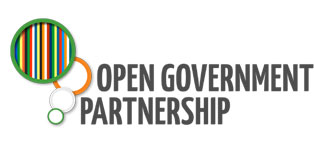The idea of an “open government” has been an important issue in the United States ever since President Obama took office in 2008. In US history, the term “open government” was first coined in 1953 by Harrod Cross. Representing the coalition of newspaper editors known as the American Society of Newspaper Editors (ASNE), Cross utilised the term in a report titled The People’s Right to Know: Legal Access to Public Records and Proceedings (Pope, 1953). [i]
Ideas regarding open government and the right to know eventually resulted in the Freedom of Information Act (FOIA) in 1966. Open government was again prominent in 1974 when the Congress amended the FOI Act and passed the Privacy Act (Yu and Robinson, 2012). [ii] Since then, the term “open government,” which was initially found only in politicians’ statement or in public meeting discussions, has started to be included in Court rulings (Yu and Robinson, 2012). [iii]
Democracy, Accountability and Open Government
On his first day in the White House, President Obama signed two memorandums that were addressed to all executive and institution leaders. One of the memos was regarding the Freedom of Information Act, and the other one was concerning Transparency and Open Government. The Obama administration was taking the initiative to further the idea of what is known as OGI or the Open Government Initiative.
The OGI is built on the belief that democracy needs accountability.[iv] To build accountability, it needs an open government that proposes three main principles, namely: transparency, participatory and collaboration.[v] In the Open Government Directive, Obama stated:
The three principles of transparency, participation, and collaboration form the cornerstone of an open government. Transparency promotes accountability by providing the public with information about what the Government is doing. Participation allows members of the public to contribute ideas and expertise so that their government can make policies with the benefit of information that is widely dispersed in society. Collaboration improves the effectiveness of Government by encouraging partnerships and cooperation within the Federal Government, across levels of government, and between the Government and private institutions. [vi]
One unique characteristic from this idea is the use of information and computer technologies (ICT) as the predominant medium. ICT utilization causes OGI to be attached to the concept of Open Government Data. Basically, Open Government Data suggests the implementation of a data provision system in the governmental sector that allows accessibility without having to submit a request. [vii]
[i] Pope, James S. Foreword To Harold L. Cross, The People’s Right To Know: Legal Access To Public Records And Proceedings. American Society of Newspaper Editors, 1953.
[ii] See Harlan Yu and David G. Robinson in The New Ambiguity of Open Government. UCLA Law Review Discourse, 59 (2012), p. 185. In the FOIA amendment, Congress stated: “open government has been recognized as the best insurance that government is being conducted in the public interest.” S. Rep. No. 93-854, at 1 (1974); In the Privacy Act, Congress stated that: “the Privacy Act of 1974 aimed to achieve the ideals of accountability, responsibility, legislative oversight, and open government together, while respecting citizen privacy in government-held information.” S. Rep. No. 93-1183, at 1 (1974).
[iii] Ibid, p. 187
[iv] In this memorandum Obama stated that: A democracy requires accountability, and accountability requires transparency. He further stated that: Freedom Of Information Act should be administered with a clear presumption: In the face of doubt, openness prevails. Presidential Memorandum, subject: Fredom of Information Act. January 21, 2009.
[v] In this memorandum Obama stated that: My Administration is committed to creating an unprecedented level of openness in Government. We will work together to ensure the public trust and establish a system of transparency, public participation, and collaboration. Presidential Memorandum, subject: Transparency And Open Government. January 21, 2009.
[vi] Memorandum For The Heads Of Executive Departments And Agencies. M-10-06. Subject: Open Government Directive. White House, Dec. 8, 2009.
[vii] See http://opendatahandbook.org/. More specifically, Open Data can be defined as follows: Open data is data that can be freely used, reused and redistributed by anyone – subject only, at most, to the requirement to attribute and sharealike.






